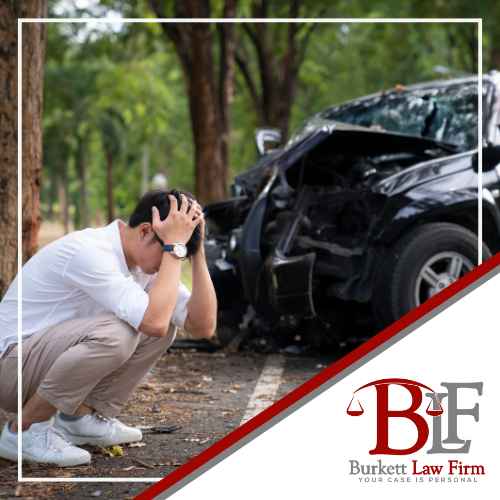
If your Corpus Christi accident lawyer isn’t promptly addressing the following key areas, it might be time to reconsider your legal representation.
Immediate Medical Attention
Your health is paramount, and we make it our first concern. Even if you don’t feel immediate pain after an accident, you should never assume you’re uninjured.
Many serious injuries—including internal bleeding, soft tissue damage, or concussions—don’t appear right away. We always ask detailed questions about your physical condition and help ensure you get evaluated by medical professionals.
Prompt treatment protects your well-being and creates essential medical records that form the foundation of your injury claim.
Accident Scene Documentation
Gathering evidence at the scene of a crash is one of the most critical steps in any car accident case. We advise our clients to take clear photographs of the vehicles, license plates, road conditions, weather, traffic signals, and any skid marks or debris.
This visual evidence often plays a critical role in proving liability and refuting any false claims made by the other party. Even seemingly minor details—like a missing stop sign or an obstructed view—can tip the balance in your favor when appropriately documented.
Witness Information Collection
Eyewitnesses can provide unbiased, real-time accounts of how an accident occurred. We help our clients collect the names and contact information of anyone who may have seen the crash, even if they didn’t stop to help.
These witness statements can corroborate your version of events and be used to counter conflicting stories or insurance disputes. The sooner we gather this information, the more reliable and accurate it tends to be, which is why it’s a key focus in the first 24 hours.
Understanding Texas Reporting Requirements
Under Texas law, you must report an accident if it results in injury, death, or property damage of $1,000 or more. (Texas Transportation Code § 550.026). Failing to report such an accident to the appropriate law enforcement agency can result in fines or even criminal charges in severe cases.
We ensure that our clients understand these obligations and assist in properly filing reports when necessary. It’s a critical step in protecting your legal standing from day one.
Insurance Notification and Communication
Notifying your insurance company after a crash is a step you should never delay. Most policies require you to report an accident promptly, often within 24 to 72 hours. We walk you through this process and even communicate with the insurance company on your behalf to avoid mistakes or misstatements that could hurt your claim.
Early notification helps move the claims process forward and shows that you’re acting in good faith, which can be important if a dispute arises later.
Preservation of Evidence
Physical evidence can make or break your case. Whether it’s a broken car part, torn clothing, or a damaged phone, we advise clients to save and photograph everything related to the accident.
Accident reconstruction experts or medical professionals can use this evidence to support your claim. We also help you preserve digital evidence, like dashcam footage or text messages, which could play a key role in establishing fault or documenting your condition.
Legal Obligations Post-Accident
Texas law places specific responsibilities on drivers involved in car crashes. If you’re in an accident that results in injury or significant property damage, you must stop, render aid if needed, and exchange information with the other party.
Failure to comply with these legal duties can result in criminal charges, fines, or even license suspension. We ensure that our clients fully understand these obligations so they don’t unintentionally put their rights—or freedom—at risk.
Statute of Limitations Awareness
Time is not on your side after a car accident in Texas. The statute of limitations for filing a personal injury or property damage claim is typically two years from the crash date. (Texas Civil Practice & Remedies Code § 16.003).
If you wait too long, the court will almost certainly dismiss your case, no matter how strong your evidence is. That’s why we emphasize urgency from the beginning and keep your case on track to meet every deadline.
Evaluating Potential Negligence
We analyze all factors contributing to the accident, including potential negligence by other parties such as drivers, commercial entities, or government agencies responsible for road maintenance. Identifying fault early on is crucial, as Texas follows a modified comparative negligence rule—meaning your compensation could be reduced if you’re found partially at fault.
We review police reports, eyewitness statements, surveillance footage, and crash reconstruction data to determine liability accurately. This comprehensive evaluation helps us build a strong case for compensation that reflects the full extent of your losses.
Communication with Other Parties
We handle all communications with the other parties and their insurance companies so you don’t have to. Saying the wrong thing to an insurer or opposing party—even unintentionally—can damage your claim.
Our job is to protect your rights and ensure that no statements are taken out of context or used against you. By stepping in as your representative early, we ensure your voice is heard, but only through a strategic and legally sound lens.
Assessing Insurance Coverage
Understanding all applicable insurance policies is vital to ensuring maximum compensation. We thoroughly examine the at-fault party’s liability coverage and your policies to identify all available sources of recovery.
This includes analyzing coverage limits, exclusions, and potential areas where claims may be denied or delayed. With this information, we tailor a strategy designed to secure the fullest financial recovery under the law.
Exploring Uninsured/Underinsured Motorist Coverage
If the driver who hit you doesn’t have insurance—or doesn’t have enough—we turn to your own uninsured/underinsured motorist (UM/UIM) coverage, if applicable. Many people aren’t even aware they carry this coverage until they need it.
We navigate the complexities of filing a UM/UIM claim, ensuring your insurer treats you fairly and complies with policy terms. This step can differentiate partial and complete financial recovery, especially in severe accidents with significant damages.
Advising on Social Media Activity
In today’s digital world, what you post online can and will be used against you in a legal case. We advise our clients to be cautious on social media, especially when posting photos, updates, or comments about their accidents or injuries.
Even an innocent post can be misconstrued by insurance companies or opposing counsel to suggest you’re less injured than you claim. We help you understand the best practices for digital communication while your case is ongoing.
Planning for Vehicle Repairs
Dealing with the logistics of repairing or replacing your vehicle can add unnecessary stress during an already difficult time. We guide you through getting repair estimates, working with the insurance company, and recovering any out-of-pocket costs.
If your car is totaled, we help ensure that the insurance company offers fair market value. We also advise you to pursue a diminished-value claim if your vehicle is repaired but has lost resale value due to the accident.
Emotional and Psychological Support
Car accidents affect more than just your body—they can leave lasting emotional scars. It’s not uncommon for clients to suffer from anxiety, PTSD, depression, or insomnia after a traumatic crash.
We understand that your emotional well-being is just as important as your physical recovery, so we provide referrals to qualified mental health professionals when needed. We want to ensure you’re supported in every aspect of your recovery, not just the legal aspects.
Frequently Asked Questions (FAQ)
What should I do if the other driver doesn’t have insurance and I don’t have UM/UIM coverage?
You may still have options if the at-fault driver is uninsured and you don’t carry uninsured/underinsured motorist coverage. We explore other potentially liable parties, such as vehicle owners, employers, or even third parties who may have contributed to the crash.
In rare cases, filing a lawsuit against the at-fault driver may be necessary, though recovery can be difficult if they lack assets.
Can I recover lost wages after an accident?
If your injuries prevent you from working, you can recover compensation for lost income, including missed workdays, reduced earning capacity, or even future lost earnings. We work closely with your employer and medical providers to document your time off and build a strong claim for those financial losses.
Do I need to give a recorded statement to the insurance company?
No—and in fact, we strongly recommend that you don’t. Insurance adjusters may use your recorded statement against you to reduce or deny your claim. Let us handle all communication with insurance companies so nothing you say is taken out of context or misinterpreted.
Will my case go to trial?
Most car accident cases settle without ever going to trial. However, if the insurance company refuses fair compensation, we are prepared to take your case to court. We’ll walk you through every step and ensure you know your options before making significant decisions.
How much does it cost to hire your firm?
We work on a contingency fee basis, which means you don’t pay us unless we win your case. There are no upfront fees or hidden costs—just a commitment to fighting for the compensation you deserve.
Finding the Right Lawyer for Your Car Accident Claim
At Burkett Law Firm, we pride ourselves on proactive and thorough representation. If your current attorney isn’t addressing these critical areas within the first 24 hours following your accident, it may be time to seek legal counsel that prioritizes your best interests.





